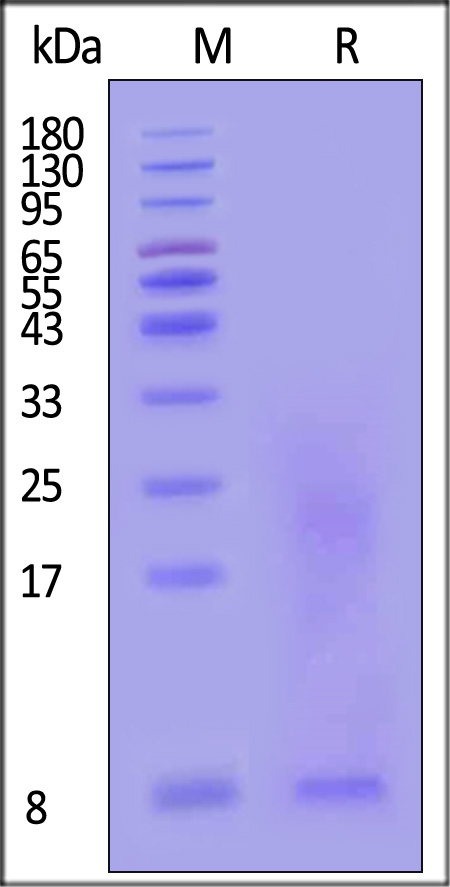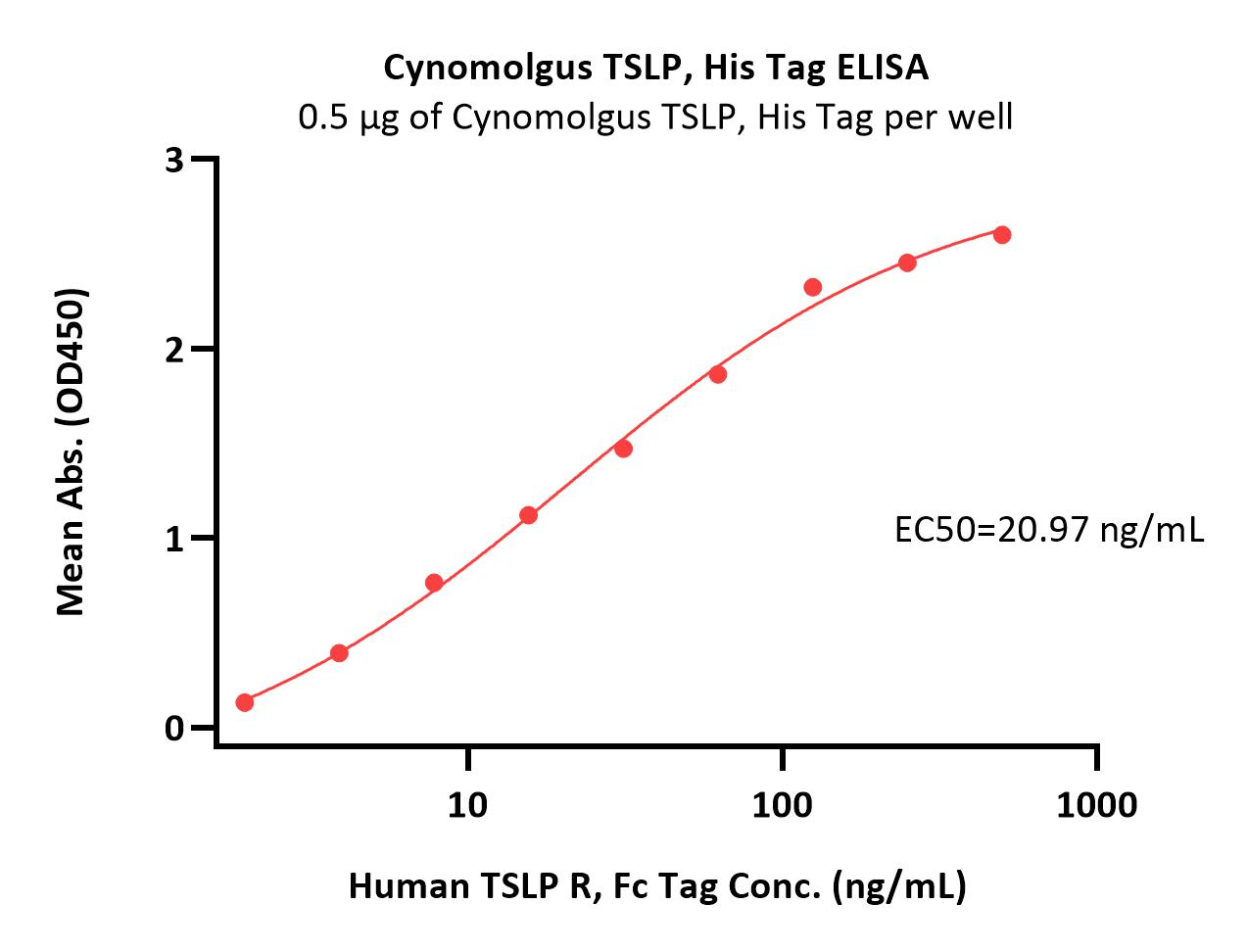分子别名(Synonym)
TSLP
表达区间及表达系统(Source)
Cynomolgus TSLP, His Tag (TSP-C52H8) is expressed from human 293 cells (HEK293). It contains AA Tyr 29 - Gln 159 (Accession # A0A7N9CAT7-1).
Predicted N-terminus: Tyr 29
Request for sequence
蛋白结构(Molecular Characterization)

This protein carries a polyhistidine tag at the C-terminus.
The protein has a calculated MW of 17.1 kDa. The protein migrates as 8-10 kDa, 15-20 kDa when calibrated against Star Ribbon Pre-stained Protein Marker under reducing (R) condition (SDS-PAGE) due to glycosylation.
内毒素(Endotoxin)
Less than 1.0 EU per μg by the LAL method.
纯度(Purity)
>90% as determined by SDS-PAGE.
制剂(Formulation)
Lyophilized from 0.22 μm filtered solution in PBS, pH7.4 with trehalose as protectant.
Contact us for customized product form or formulation.
重构方法(Reconstitution)
Please see Certificate of Analysis for specific instructions.
For best performance, we strongly recommend you to follow the reconstitution protocol provided in the CoA.
存储(Storage)
For long term storage, the product should be stored at lyophilized state at -20°C or lower.
Please avoid repeated freeze-thaw cycles.
This product is stable after storage at:
- -20°C to -70°C for 12 months in lyophilized state;
- -70°C for 3 months under sterile conditions after reconstitution.
电泳(SDS-PAGE)

Cynomolgus TSLP, His Tag on SDS-PAGE under reducing (R) condition. The gel was stained with Coomassie Blue. The purity of the protein is greater than 90% (With Star Ribbon Pre-stained Protein Marker).
活性(Bioactivity)-ELISA

Immobilized Cynomolgus TSLP, His Tag (Cat. No. TSP-C52H8) at 5 μg/mL (100 μL/well) can bind Human TSLP R, Fc Tag (Cat. No. TSR-H525a) with a linear range of 2-31 ng/mL (QC tested).
Protocol

Immobilized Cynomolgus TSLP, His Tag (Cat. No. TSP-C52H8) at 5 μg/mL (100 μL/well) can bind Monoclonal Anti-Human TSLP Antibody, Human IgG2 with a linear range of 1-16 ng/mL (Routinely tested).
Protocol
背景(Background)
Thymic stromal lymphopoietin (TSLP) is an epithelial cell-derived cytokine involved in the pathology of inflammatory skin diseases, and is widely expressed by epithelial cells. Human TSLP cDNA encodes a 159 amino acid (aa) residue precursor protein with a 28 aa signal sequence (4, 5). Human TSLP has been shown to developing nondeletional central tolerance, amplifying epithelium-induced class switching, inducing atopic diseases and maintaining intestinal noninflammatory environment. Among diverse cells responding to Human TSLP, CD11c+ dendritic cells are the most obviously characterized target cells.























































 膜杰作
膜杰作 Star Staining
Star Staining













